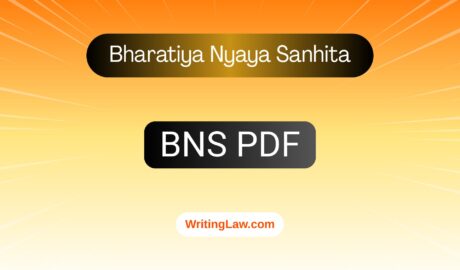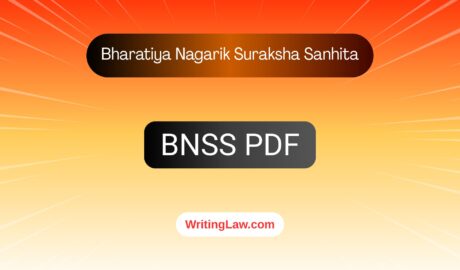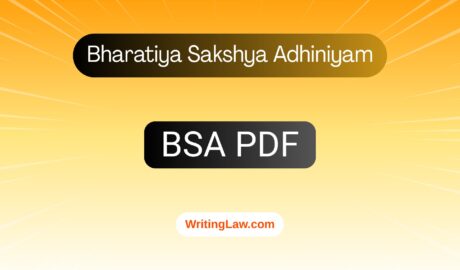
Clarity of factual propositions and a grasp of legal aspects are essential skills in the legal field. They enable effective communication, accurate decision-making, and the protection of individual rights and help to build trust between legal professionals and their clients.
Essential Skills for the Legal Field
Clarity of factual propositions (an idea or opinion that somebody expresses about something) and a grasp of legal aspects are essential skills for anyone in the legal field.
Clarity of factual propositions refers to the ability to present information clearly and concisely. In the legal field, this is particularly important when presenting evidence or making arguments. It involves identifying relevant facts, organizing them logically, and presenting them in a way that is easily understood by others.
A grasp of legal aspects refers to an understanding of the legal system and the laws that govern it. This includes knowledge of legal concepts, procedures, and precedents. It also involves an ability to apply this knowledge in a practical way to legal problems and situations.
These skills are essential for lawyers, judges, and other legal professionals. They allow these individuals to present arguments and make decisions based on clear and accurate information. They also help to ensure that legal proceedings are conducted fairly and effectively.
In addition to being essential for legal professionals, clarity of factual propositions and a grasp of legal aspects are also beneficial for anyone involved in legal situations. For example, individuals representing themselves in court or dealing with legal issues on their behalf may find that these skills help present their cases effectively.
A clear understanding of the relevant facts and legal concepts can also help individuals make informed decisions about legal matters. This may include deciding whether to pursue legal action, negotiating settlements, or seeking legal advice.
Individuals may benefit from formal legal education, such as a law degree or paralegal training program to develop these skills. However, many resources are available online and in print to help individuals improve their understanding of legal concepts and procedures.
Clear communication skills and legal knowledge are essential for anyone working in or dealing with the legal system. By developing these skills, individuals can better navigate legal issues and ensure that their rights are protected.
What Is Factual Proposition?
A factual proposition is a statement that asserts a fact or a piece of information about the world. In the legal context, a factual proposition is a statement of fact relevant to a legal case or issue.
For example, in a criminal trial, a factual proposition might be that the defendant was at the crime scene when it occurred. In a civil case, a factual proposition might be that a particular product caused harm to the plaintiff.
Factual propositions are essential to legal proceedings because they provide the basis for arguments and evidence presented by both sides. Therefore, legal professionals must be able to identify relevant factual propositions, evaluate their credibility and relevance, and present them in a clear and accurate manner to support their cases.
It is important to note that factual propositions differ from legal propositions, which refer to statements of law or legal principles. Legal propositions are also essential to legal proceedings but are distinct from factual propositions.
Facts and Types of Facts
Generally, a fact is a statement or proposition that can be verified as true or false based on objective evidence or observation. In the legal context, facts are the basis for legal arguments, evidence, and decision-making.
Types of facts can vary depending on the context. However, here are some general categories of facts:
1. Objective Facts
Objective facts are verifiable through evidence and observation. For example, the car’s colour, the building’s height, or the date of a historical event are all objective facts.
2. Subjective Facts
Subjective facts are based on personal opinions, beliefs, or perceptions. For example, whether someone likes a particular type of music or feels sad on a specific day is subjective.
3. Historical Facts
Historical facts are those that pertain to events that occurred in the past. For example, the date that a historical figure was born or the location of a famous battle is a historical fact.
4. Scientific Facts
Scientific facts are established through scientific research and investigation. For example, the fact that the Earth revolves around the Sun is a scientific fact.
5. Legal Facts
Legal facts are relevant to a legal case or issue. For example, whether a person was present at the scene of a crime or whether a contract was breached are legal facts. They support legal arguments and evidence presented by both sides in a legal proceeding. Legal points can include:
Factual Circumstances: Legal facts may include the factual circumstances surrounding a case or issue, such as the actions of the parties involved, the time and place of an incident, or the nature of a contractual agreement.
Legal Requirements: Legal facts may also include legal requirements or elements that must be met to prove a case or legal argument. For example, in a negligence case, the legal facts may consist of the following:
- The duty of care owed by one party to another.
- A breach of that duty.
- Resulting damages.
Expert Opinions: Legal facts may also include expert opinions or testimony that provide information or analysis relevant to a legal issue. For example, an expert witness may provide information about the cause of an accident, the value of the property, or a plaintiff’s medical condition.
Legal Precedents: Legal facts may also include legal precedents or past court decisions that establish legal principles or rules relevant to a case or issue.
It is important to note that legal facts are not always straightforward and can be subject to interpretation or dispute. Moreover, in the legal context, it is essential to distinguish between facts and legal principles or rules, as they are treated differently in legal proceedings. Therefore, legal professionals must carefully evaluate the facts of a case and determine how they apply to the relevant legal principles to make a persuasive argument or decision.
Importance of Clarity of Factual Proposition and Grasp of Legal Aspects
The importance of clarity of factual proposition and grasp of legal aspects cannot be overstated in the legal field. Here are some reasons why:
1. Effective Communication
Clear and concise communication is essential in the legal field. Lawyers, judges, and other legal professionals must be able to present their arguments and findings in an easily understood way. Without clarity of factual propositions, essential details may be missed, and the message may be lost.
2. Accurate Decision-Making
Legal decisions are based on the facts of the case and the relevant legal principles. Without a solid grasp of legal aspects, legal professionals may make incorrect decisions or miss important details that could impact the outcome of a case.
3. Protecting Rights
Legal issues often involve complex procedures and legal jargon that can confuse individuals unfamiliar with the legal system. A clear understanding of legal aspects can help individuals protect their rights and make informed decisions about legal matters.
4. Building Trust
Trust is essential in the legal field, and clear communication and a solid grasp of legal aspects can help to build trust between legal professionals and their clients. This is particularly important in cases where individuals are dealing with sensitive or emotional issues.
5. Efficiency
Time is often of the essence in the legal field. With a clear understanding of factual propositions and legal aspects, legal professionals can work efficiently and effectively to resolve legal issues and achieve the best possible outcomes for their clients.
6. Persuasion
In the legal field, lawyers must persuade judges and other legal professionals of the merits of their arguments. A clear and compelling presentation of factual propositions, coupled with a solid grasp of legal aspects, can be persuasive and help to sway the decision in their favour.
7. Avoiding Errors
A lack of clarity in factual propositions or a misunderstanding of legal aspects can lead to mistakes in legal proceedings. These errors can have serious consequences, such as a wrongful conviction or an unfavourable settlement. By ensuring clarity and accuracy, legal professionals can help to avoid such mistakes.
8. Reputation
Legal professionals who consistently demonstrate clarity of factual propositions and a solid grasp of legal aspects build a reputation for being reliable, trustworthy, and effective. This can lead to repeat business, referrals, and a positive reputation in the legal community.
9. Compliance
Laws and regulations are constantly evolving, and legal professionals must stay up-to-date on legal landscape changes. A strong grasp of legal aspects is essential for ensuring compliance with these changes.
Challenges in Achieving Clarity of Factual Propositions and Grasping Legal Aspects
Clarifying factual propositions and grasping legal aspects can present significant challenges. Here are some of the common challenges related to these areas:
1. Ambiguity
Factual propositions can sometimes be vague or ambiguous, making it challenging to understand the intended meaning. This can be due to unclear wording or the use of technical jargon.
2. Bias
People can have preconceived notions and biases that can affect their ability to understand factual propositions and legal aspects. This can lead to incorrect assumptions or judgments.
3. Complexity
Legal concepts can be highly complex, making them difficult for non-lawyers to understand. The use of legal jargon can add to this complexity, making it challenging to grasp the nuances of legal language and concepts.
4. Lack of Context
Factual propositions and legal aspects can be difficult to understand without proper context. This can be due to the lack of background information, unfamiliarity with the subject matter, or understanding of the legal system.
5. Limited Access to Information
Sometimes, the necessary information to understand a factual proposition or legal aspect may be limited or inaccessible. This can make it difficult to make informed decisions or judgments.
6. Changes in Law and Policy
Legal frameworks and policies can change over time, making it challenging to keep up with the latest developments. This can create confusion and uncertainty, particularly for non-lawyers.
To overcome these challenges, it’s essential to seek out reliable sources of information and take the time to research and understand the relevant facts and legal aspects. In addition, consulting with experts in the field can also help gain a deeper understanding of complex legal concepts and their application.
Read Next:
1. What Is Case Law Research and Its Advantages and Disadvantages?
2. Application of Social Research Findings in the Field of Law
How was this law article?
- What Is the Burden of Proof Under the PMLA? - 18th April 2024
- Ranjit D Udeshi vs State of Maharashtra – Case Explained - 11th April 2024
- What Is Proceeds of Crime Under PMLA (With Case Laws) - 7th April 2024









